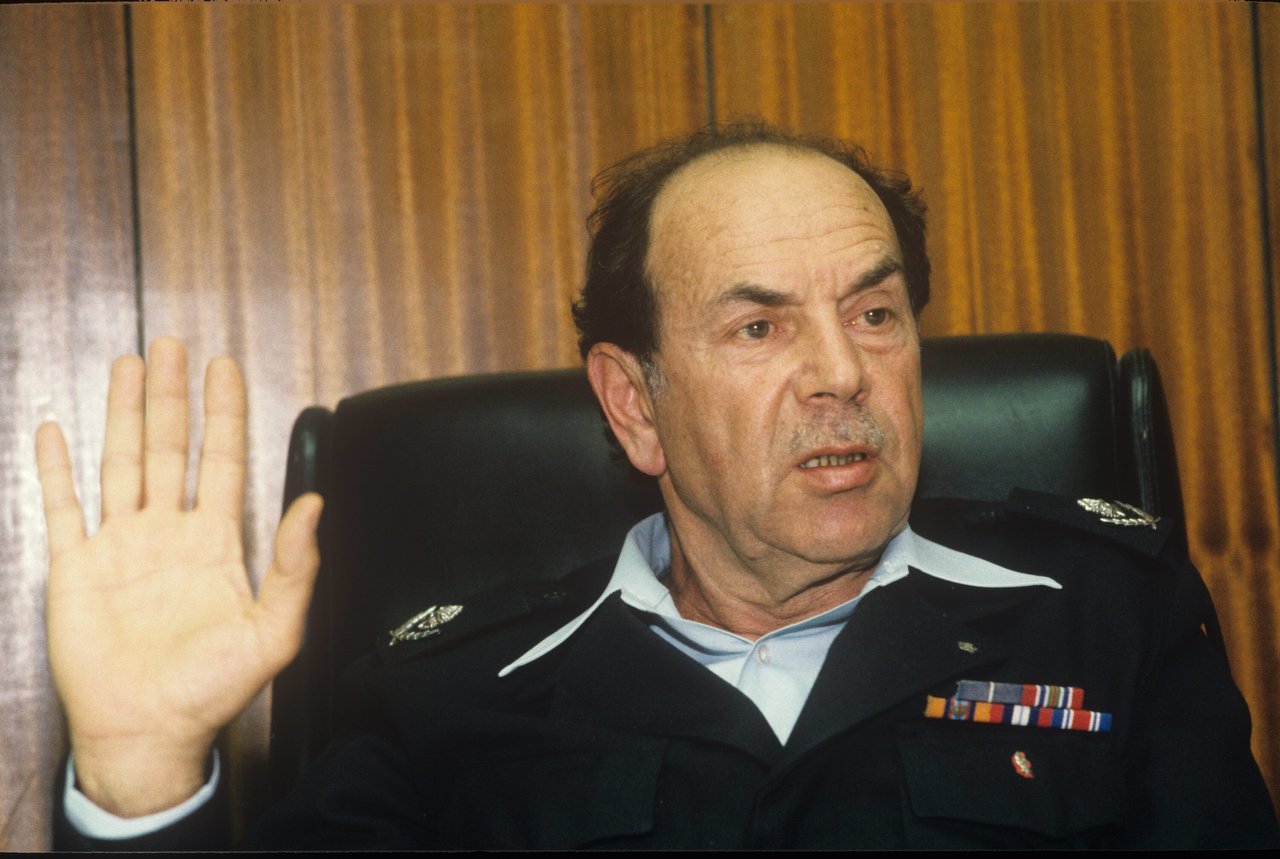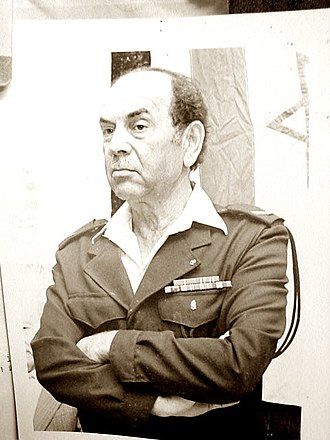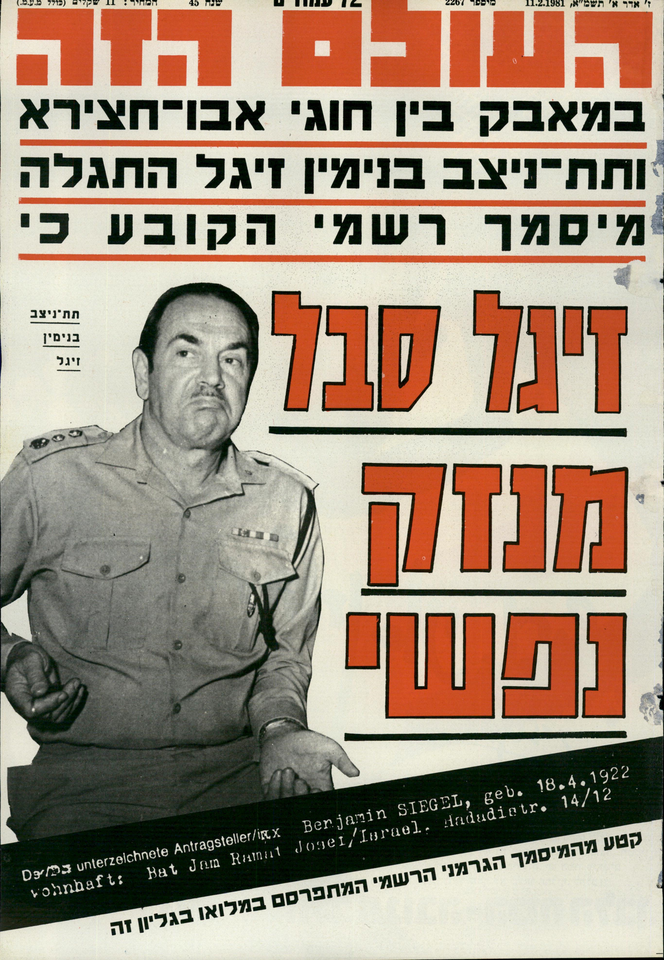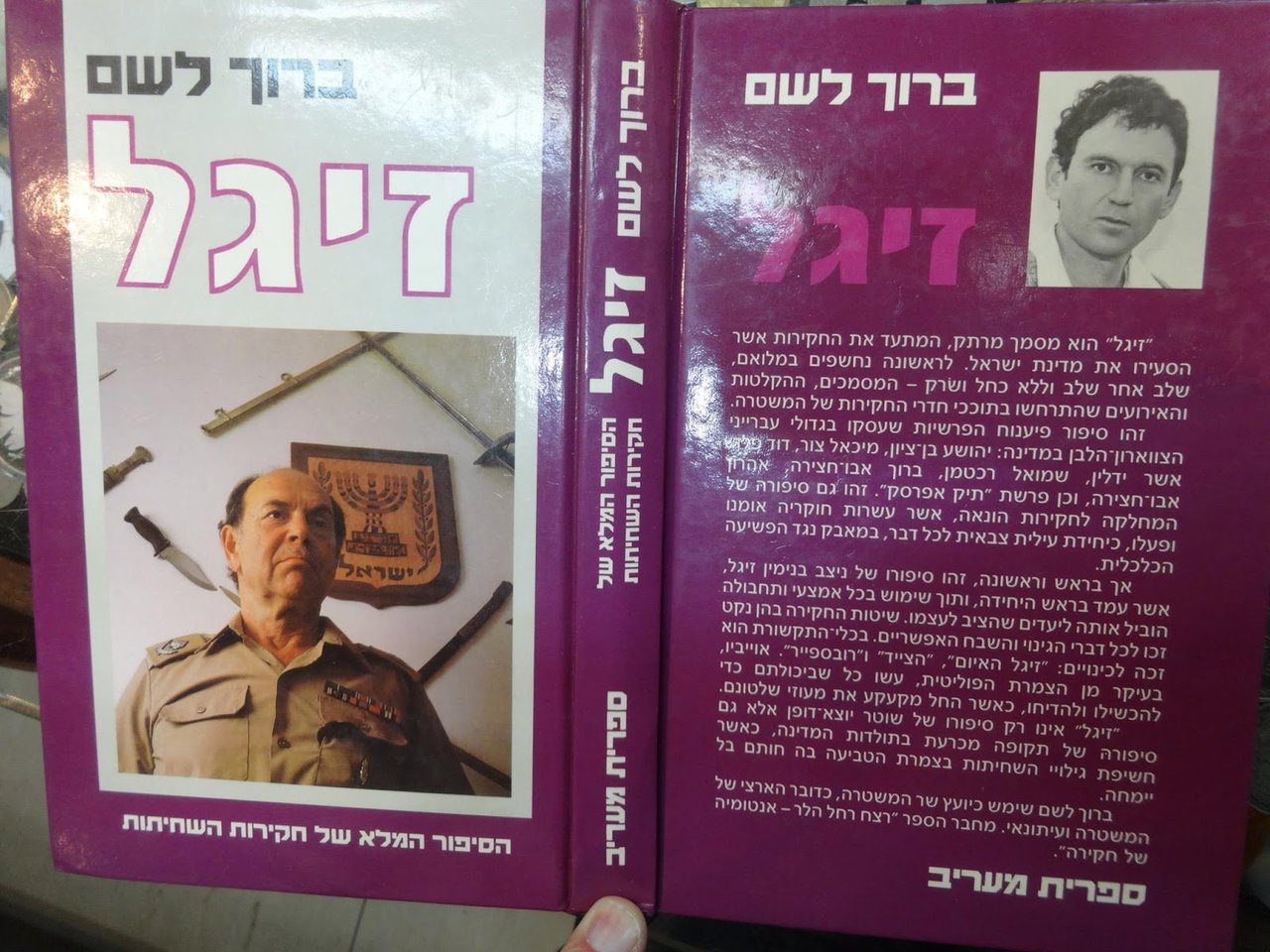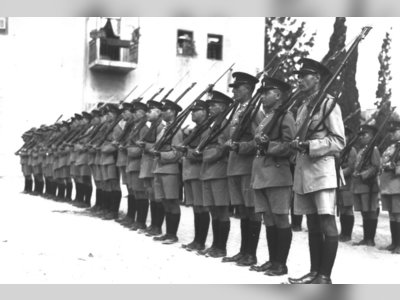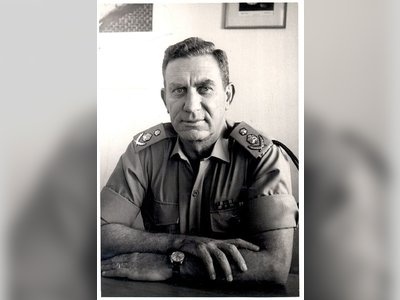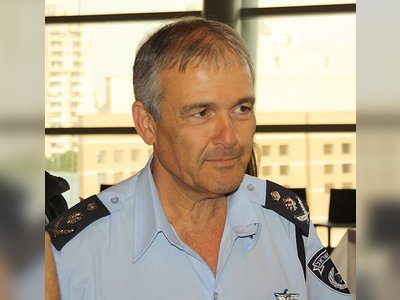מורשת גדולי האומה
בזכותם קיים
beta
Benjamin Zigel: A Life Devoted to Fighting Corruption
Benjamin Zigel (April 18, 1922 - September 28, 2001) was a prominent figure in the Israeli police force, known for co-founding the National Fraud Investigation Unit. He was a dedicated investigator who championed the battle against public corruption.
Zigel was born in Kanczuga, Poland, and began his educational journey in local schools before moving on to study in Zhovkva. Later, he attended a teacher's college in Zhovkva and, after completing his studies, worked as a teacher in Multanovo.
With the outbreak of World War II, Zigel found himself in a labor camp but managed to escape and cross enemy lines. In 1942, he joined the Red Army and served in a reconnaissance unit under Polish command. Subsequently, he served in the first infantry division of the Polish Army in the West. Zigel steadily rose through the ranks and was eventually appointed as the deputy commander of his battalion. He received commendations for his leadership during the operation to capture a German airfield. This marked the beginning of his journey to become the highest-ranking Jewish officer in the Polish combat units during World War II.
Zigel's unit was a commando force specializing in daring activities behind enemy lines. Throughout the war, Zigel earned 13 bravery awards, including 9 Polish and 4 Soviet honors, one of which was the Red Star. Following the war, he served as the commander of the Infantry School in Poland.
His enlistment in the Red Army saved his life during World War II, as most of his extended family perished in the Holocaust, with only two of his sisters surviving, one immigrating to the United States, and the other settling in Siberia. Zigel himself became the head of the Officer's School in Poland. After the war, he registered for the Aliyah Bet, an illegal Jewish immigration organization, operating in Poland under the auspices of the Jewish Agency.
In 1948, at the age of 26, Zigel immigrated to Israel and joined the Israeli police force as an officer. He served for two years in various patrol and detective roles and received a commendation from the Police Commissioner for apprehending three armed robbers. In 1951, he was part of the first class of police officer training and later served as the commander of the Police Training School in Tel Aviv. During his time in the police force, he pursued legal studies at the Tel Aviv School of Law and Economics.
Upon completing his legal specialization, he served as an investigations officer in the Tel Aviv police, rising to the rank of supervisor. In 1960-1961, he worked as a detective in the Central Unit of the National Headquarters, primarily focusing on economic crimes. From 1965 to 1970, he headed the Fraud Division in the Tel Aviv district, holding the rank of captain and major.
In 1971, Zigel was promoted to deputy superintendent and was appointed head of the Human Resources Division in the police force. His close associates claimed that he was reassigned from the investigative role due to his unwavering dedication, which sometimes clashed with the force's objectives.
Following personnel changes in the police force and the appointment of Rav Nitzav Shaul Rosolio as the Police Commissioner, changes were made in the structure of the police force. A strong emphasis was placed on combating systemic corruption. Rav Nitzav Rosolio asked Zigel to lead a new unit established within the police - the Fraud Investigation Unit at National Headquarters, which became the Anti-Fraud Investigation Unit in January 1975. In April 1975, Zigel was promoted to the rank of superintendent. One of the unit's early investigations involved the collapse of the Bank of Israel-British branch and financial irregularities committed by the bank's CEO, Yehoshua Ben-Zion, which led to the bank's downfall. This case shifted Zigel's focus towards tackling "big fish" criminals.
Another significant investigation during this period was that of Michael Tzur, the head of the Israel Corporation. Following rumors of his misconduct, Zigel began investigating allegations of criminal activities. Zigel employed two methods: pressuring his team through accounting documents and personally trying to break Tzur's resistance to admitting wrongdoing. Another case during this period was the Yedlin case. The investigation began following allegations of bribery in the "This World" magazine. Although the initial inquiry did not yield results, Zigel expanded the investigation into all of Yedlin's activities, eventually resulting in a separate conviction.
In March 1978, Zigel was promoted to the rank of deputy commissioner. In 1981, he was awarded the Police Distinguished Service Decoration.
In February 1985, Zigel was appointed head of the Police Disciplinary Court and was promoted to the rank of commissioner. In July 1987, at the age of 65, he retired and opened a law office specializing in white-collar crime. Upon his retirement from the police force, Zigel stated, "Adopting a military code of conduct requires one moment of heroism, while adopting a civilian code of conduct is often grayer and lacks moments of glory. It's an everyday battle where the act of struggling itself reveals your strength."
In 2001, Benjamin Zigel passed away at the age of 79. He was survived by his two daughters from his marriage to Nechama and was buried in the Kiryat Shaul Military Cemetery.
With the outbreak of World War II, Zigel found himself in a labor camp but managed to escape and cross enemy lines. In 1942, he joined the Red Army and served in a reconnaissance unit under Polish command. Subsequently, he served in the first infantry division of the Polish Army in the West. Zigel steadily rose through the ranks and was eventually appointed as the deputy commander of his battalion. He received commendations for his leadership during the operation to capture a German airfield. This marked the beginning of his journey to become the highest-ranking Jewish officer in the Polish combat units during World War II.
Zigel's unit was a commando force specializing in daring activities behind enemy lines. Throughout the war, Zigel earned 13 bravery awards, including 9 Polish and 4 Soviet honors, one of which was the Red Star. Following the war, he served as the commander of the Infantry School in Poland.
His enlistment in the Red Army saved his life during World War II, as most of his extended family perished in the Holocaust, with only two of his sisters surviving, one immigrating to the United States, and the other settling in Siberia. Zigel himself became the head of the Officer's School in Poland. After the war, he registered for the Aliyah Bet, an illegal Jewish immigration organization, operating in Poland under the auspices of the Jewish Agency.
In 1948, at the age of 26, Zigel immigrated to Israel and joined the Israeli police force as an officer. He served for two years in various patrol and detective roles and received a commendation from the Police Commissioner for apprehending three armed robbers. In 1951, he was part of the first class of police officer training and later served as the commander of the Police Training School in Tel Aviv. During his time in the police force, he pursued legal studies at the Tel Aviv School of Law and Economics.
Upon completing his legal specialization, he served as an investigations officer in the Tel Aviv police, rising to the rank of supervisor. In 1960-1961, he worked as a detective in the Central Unit of the National Headquarters, primarily focusing on economic crimes. From 1965 to 1970, he headed the Fraud Division in the Tel Aviv district, holding the rank of captain and major.
In 1971, Zigel was promoted to deputy superintendent and was appointed head of the Human Resources Division in the police force. His close associates claimed that he was reassigned from the investigative role due to his unwavering dedication, which sometimes clashed with the force's objectives.
Following personnel changes in the police force and the appointment of Rav Nitzav Shaul Rosolio as the Police Commissioner, changes were made in the structure of the police force. A strong emphasis was placed on combating systemic corruption. Rav Nitzav Rosolio asked Zigel to lead a new unit established within the police - the Fraud Investigation Unit at National Headquarters, which became the Anti-Fraud Investigation Unit in January 1975. In April 1975, Zigel was promoted to the rank of superintendent. One of the unit's early investigations involved the collapse of the Bank of Israel-British branch and financial irregularities committed by the bank's CEO, Yehoshua Ben-Zion, which led to the bank's downfall. This case shifted Zigel's focus towards tackling "big fish" criminals.
Another significant investigation during this period was that of Michael Tzur, the head of the Israel Corporation. Following rumors of his misconduct, Zigel began investigating allegations of criminal activities. Zigel employed two methods: pressuring his team through accounting documents and personally trying to break Tzur's resistance to admitting wrongdoing. Another case during this period was the Yedlin case. The investigation began following allegations of bribery in the "This World" magazine. Although the initial inquiry did not yield results, Zigel expanded the investigation into all of Yedlin's activities, eventually resulting in a separate conviction.
In March 1978, Zigel was promoted to the rank of deputy commissioner. In 1981, he was awarded the Police Distinguished Service Decoration.
In February 1985, Zigel was appointed head of the Police Disciplinary Court and was promoted to the rank of commissioner. In July 1987, at the age of 65, he retired and opened a law office specializing in white-collar crime. Upon his retirement from the police force, Zigel stated, "Adopting a military code of conduct requires one moment of heroism, while adopting a civilian code of conduct is often grayer and lacks moments of glory. It's an everyday battle where the act of struggling itself reveals your strength."
In 2001, Benjamin Zigel passed away at the age of 79. He was survived by his two daughters from his marriage to Nechama and was buried in the Kiryat Shaul Military Cemetery.
- "אנשי המערך לא לחצו עלי משלם; חליכוד לחץ" הספרייה הלאומית של ישראל │ עיתוניםnli.org.il
- אתר ההנצחה לחללי מערכות ישראלאתר ההנצחה לחללי מערכות ישראלizkor.gov.il
